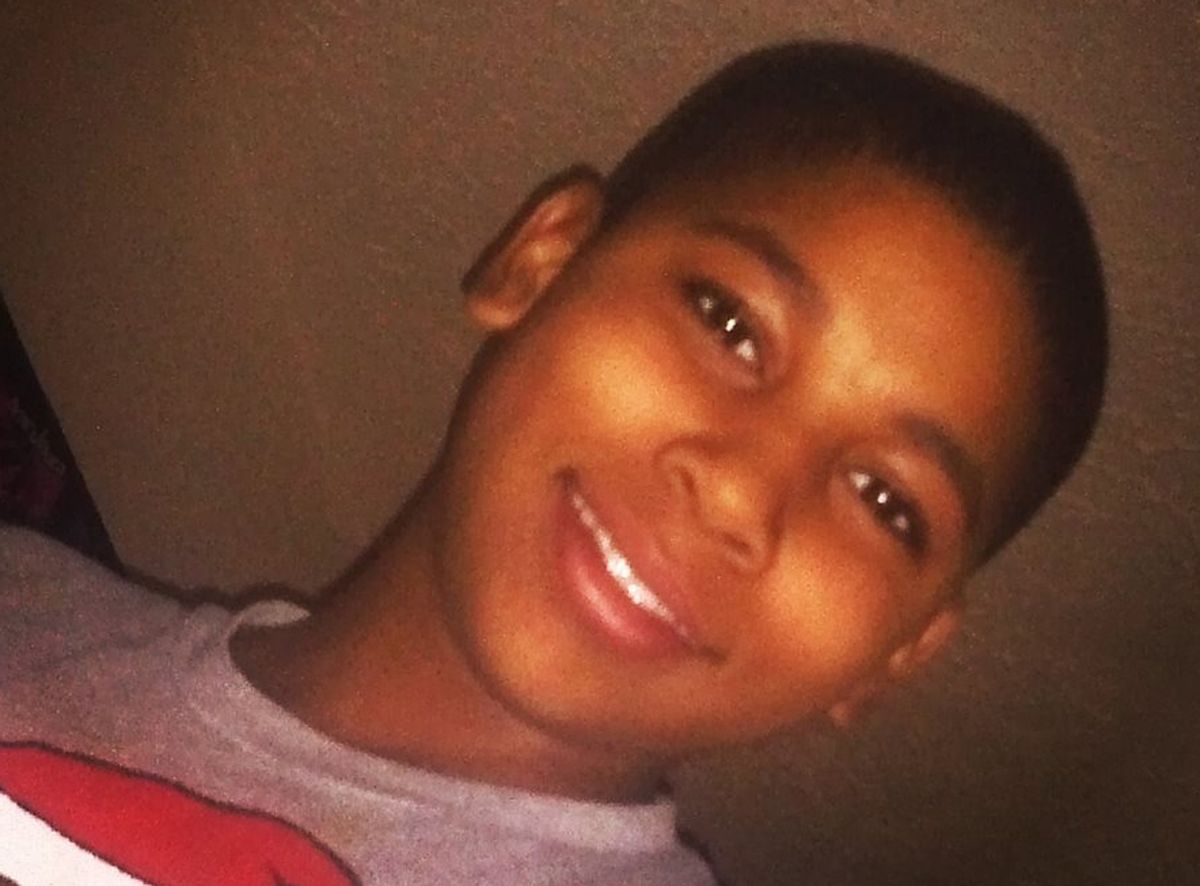In the video, you see Tamir Rice fall almost instantly. A Cleveland cop car pulls up to the 12-year-old and it barely has time to stop before a police officer shoots him. It is so fast it is almost one fluid motion. It seems impossible that the officer could have made any rational decision about what he was doing in what turned out to have been under two seconds. It seems equally impossible that the encounter could be deemed proper in any way.
Nevertheless, that is what has happened. Late Saturday night, the Cuyahoga County prosecutor's office released two separate reports on the Rice shooting by independent use-of-force experts. Both reports said the same thing. The officer, Tim Loehmann, didn't know that the toy gun Rice was carrying around was a fake. Therefore, when he killed Rice seemingly without a second thought, he was acting in a "reasonable" manner.
This designation of "reasonable" led many, including the attorneys for the Rice family, to an equally reasonable conclusion: There will be no accountability for Tim Loehmann, or for Frank Garmback, the officer driving the cop car. There will be no indictment, there will be no trial, and the scandal of Tamir Rice's death will be tossed into the legal garbage can, another testament to the cheapness with which black life is valued in America. Cleveland officials were quick to stress that nothing has been decided yet, but it doesn't take a law degree to recognize what's happening here. Once you say that it is possible to shoot a little boy within two seconds and still be on the side of reasonableness, you have given the game away.
And really, it is that game we should be looking at. The point is not so much whether Tamir Rice's killers were or were not behaving in a way that falls within the statutes set down for police officers. The point is that those statutes are themselves shameful. How can it be right, in any legal or moral sense, for police to have the kind of leeway that allows them to be let off the hook for the killing of a child—a child who was given almost literally no time to explain himself, to even move before he was fatally wounded on the ground? This framework is not an accident. We have designed a system that provides for this sort of thing—that tells police that there is essentially nothing they can do that will place them on the wrong side of the law. It is not that the police officer is above the law. It is that the law is telling the police officer that, where he or she is concerned, there really is no law at all. The cop is supreme, and that is as it should be.
Of course, the usual caveat about America applies here: especially where black people are concerned. The law is a slippery thing, and it goes without saying that, had Tamir Rice been a little white boy, we might very well be having a different conversation. The deaths of cute white children have a way of tugging at the heartstrings of the American judicial system in a way that cute black children have never managed to do.
It is not an accident that, when the Tamir Rices and Eric Garners of the world are killed, the conversation is aggressively maneuvered into that of the legal seminar, for that is where the inevitable exoneration can be found. Look at the words used in one of the reports on Rice's death: "There can be no doubt that Rice's death was tragic and, indeed, when one considers his age, heartbreaking. However, for all of the reasons discussed herein, I conclude that Officer Loehmann's belief that Rice posed a threat of serious physical harm or death was objectively reasonable as was his response to that perceived threat."
In other words, sad, yes, but what can you do? He's a police officer. (The man who wrote those words, S. Lamar Sims, is on record as saying there are almost no circumstances where you could indict an officer for killing someone.) The notion that there could be another way—that perhaps the law could be different, that perhaps the constant drumbeat of black death could spur some new kinds of thinking, is not to be contemplated.

Shares